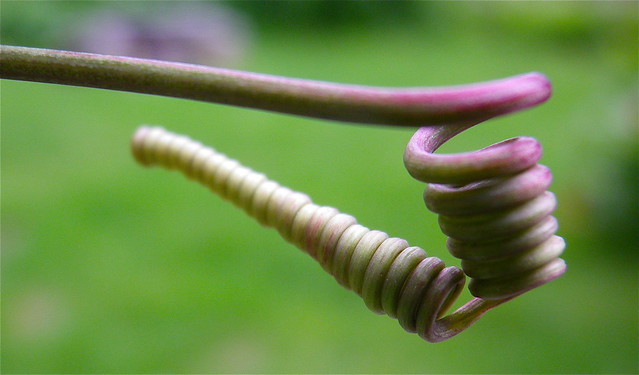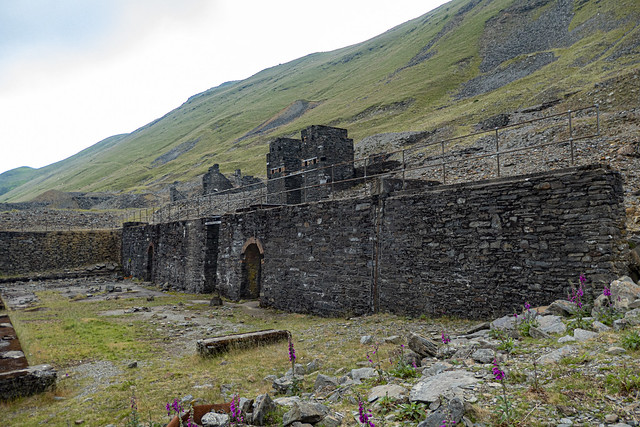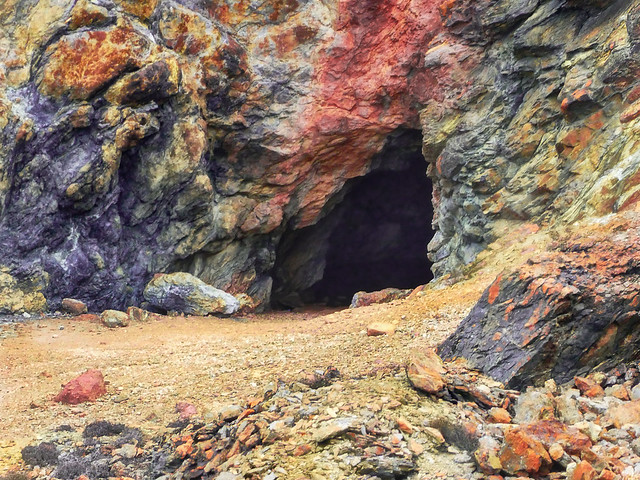Today we’re looking at the words for soft and tender and related things in Celtic languages.

Words marked with an * are reconstructions.
| Proto-Celtic |
*buggos = soft, tender |
| Old Irish (Goídelc) |
boc = soft, gentle, tender |
| Middle Irish (Gaoidhealg) |
boc = soft, gentle, tender, tepid |
| Irish (Gaeilge) |
bog [bˠɔɡ / bˠʌɡ] (noun) = soft, tender, flabby, indulgent, lenient, mellow (voice), mild (weather), loose, lukewarm
bog (verb) = to soften, become soft, ease, warm, get milder, move, loosen, rock
bogach = soft, boggy ground
bogachar = softness, bogginess
bogadh = softening, easement, movement, stir
bogánta = soft, squelchy
bogearraí = software
an rud a fhaightear go bog caitear go bog é = easy come, easy go
tóg go bog é = take it easy |
| Scottish Gaelic (Gàidhlig) |
bog [boɡ] = flabby, soft, limp, pulpy; moist, marshy, boggy, slopp; foolish; damp, humid; indulgent; spiritless; flat (in music); lax (in linguistics)
bogach = bog, fen, marsh, swamp, morass, quagmire
bogachadh = wetting, steeping, moistening, mellowing, softening, swilling
bathar-bog = software |
| Manx (Gaelg) |
bog = soft, easy, tender, flabby, pulpy, slack, limp, moist, soft-hearted, callow
boggagh = to soften, steep
strong>boggaghey = to soften, relax, ease, moisten, dissolve
boggyr = soft
boglagh = quagmire, morass, swamp, oozy, boggy
bog-roauyr = podgy
bog-vroiet = soft-boiled
bog- vroojit = squashy |
| Old Breton (Brethonoc) |
buc = soft, tender |
| Middle Breton (Brezonec) |
boug = soft, tender |
| Breton (Brezhoneg) |
bouk [buːk] = soft, cozy, heavy, stifling (weather)
boukaat [buˈkɑːt] = to soften, tenderize
boukted = softness, weakness |
Etymology: from the Proto-Indo-European *bʰewgʰ- (to bend, curve, arch) [source].
The English word bog (wet spongy ground, marsh, swamp), was borrowed from the Irish or Scottish Gaelic bog [source]. English words from the same PIE root include badge, bagel, (to) bow, buck and bow (and arrow) [source].
| Old Irish (Goídelc) |
muad = cloud, mist, fumes |
| Middle Irish (Gaoidhealg) |
muad, muadh = cloud, mist, fumes |
| Scottish Gaelic (Gàidhlig) |
muadh = soft, moist |
| Manx (Gaelg) |
meeley = soft, bland, smooth, yielding, soft-spoken, moisten, delicate, fine |
| Middle Welsh (Kymraec) |
medal, meddal [kam] = soft, yielding, tender, delicate, pliable |
| Welsh (Cymraeg) |
meddal [ˈmɛðal / ˈmeːðal] = soft, yielding, tender, delicate, pliable; mild, gentle, placid, tolerant, merciful, lax, inexperienced, foolish, weak
meddalu = to soften, become soft, thaw; to lenite, cause lenition
meddalaidd = soft, softish, tender, immature, foolish, weak
meddalder = softness, soft spot, tenderness, sensitivity
meddaledig = softened, soft, tender
meddalwedd = software
treiglad meddal = soft mutation |
| Middle Cornish |
medhal, meddal = soft, mollient, tender
medhalder = softness, tenderness, mildness, gentleness |
| Cornish (Kernewek) |
medhel = soft
medhelhe = to lenite, soften, absorb
medhelheans = lenition
medhelweyth = software |
| Middle Breton |
mezell = malleable, mean |
| Breton (Brezhoneg) |
mezel = malleable, mean, leprosy |
Etymology: possibly from Proto-Indo-European *ml̥dus (soft, weak) [source]. Words from the same PIE root include mild in English, mild (mild, gentle, lenient) in Dutch, mladý (young) in Czech, molle (soft, flabby, weak, feeble) in Italian, mou (soft, mushy, squishy, slow, weak, comfortable) in French, and muelle (soft, mild) in Spanish [source].
| Proto-Celtic |
*mīnis = smooth, soft, gentle
*meinos = tender, soft, gentle |
| Gaulish |
*mēnos = (?) |
| Old Irish (Goídelc) |
mín = fine, minor, petty, small, level, smooth |
| Middle Irish (Gaoidhealg) |
mín, min = smooth, level, calm, gentle, placid, courteous, docile, digestible, palatable, soft |
| Irish (Gaeilge) |
mín [mʲiːnʲ] = smooth, fine
míneadas = gentleness, refinement
míneog = gentle, placid woman
mínigh = to smooth, polish, level, reclaim, make gentle, assuage, quiet, explain, expound, interpret
míníneacht = daintiness, refinement, gentleness, quietness, subtlety, preciosity, dainty, delicacy
mínitheoir = smoother, polisher, leveller, reclaimer, assuager, pacifier, explainer, interpreter |
| Scottish Gaelic (Gàidhlig) |
mìn [miːn] = smooth, silky, sleek, gentle, dainty, downy, powdery, fine, bland
mìneachd [miːnəxg] = smoothness, softness, delicacy, minuteness
mìnealas = softness, gentleness |
| Manx (Gaelg) |
meen = soft, sweet, meek, mild, bland, darling, dear, patient, quiet
meeninagh = soft, tameable, emollient
meeinid = softness, smoothness, patience, mildness, gentleness, blandness |
| Proto-Brythonic |
*muɨn = mild, gentle |
| Middle Welsh (Kymraec) |
mwyn = tender, mild, gentle, meek
mwynaidd = tender, mild, gentle, kind
mwynas = good, turn, kindness, courtesy, love |
| Welsh (Cymraeg) |
mwyn [muːɨ̯n / mʊi̯n] = tender, mild, gentle, meek, amiable, loving, kind, obliging, courteous, noble, fair, pleasant, sweet-sounding, melodious, soft, soothing
mwynaidd = tender, mild, gentle, kind
mwynas = good, turn, kindness, courtesy, love
mwyndeb = mildness, gentleness, pleasure
mwyndeg = gentle and fair, tender, genial, affable |
| Old Cornish |
muin = gracile |
| Middle Cornish (Cernewec) |
mon, moyn = slender, |
| Cornish (Kernewek) |
moon = slender, slim, thin |
| Old Breton (Brethonoc) |
moin = delicate |
| Middle Breton (Brezonec) |
moan = thin, slim, slender |
| Breton (Brezhoneg) |
moan [mwãːn] = thin, slim, slender, fine, subtle
moanaat = to get thinner, get slimmer, thin down, lose weight
moanard = a thin, slender, skinny person
moanded = slimming |
Etymology: from Proto-Indo-European *meyh₁- (mild, soft). Words from the same root possible include mite (mild, moderate, balmy, mild, meek) and mezzo (half, middle, means, method) in Italian, miły (nice, pleasant, dear, gentle, soft) in Polish, and mielas (nice, sweet, cute) in Lithuanian [source].

Sources: Wiktionary, Etymological Dictionary Of Proto Celtic, In Dúil Bélrai English – Old Irish glossary, eDIL – Electronic Dictionary of the Irish Language, Teanglann.ie, Am Faclair Beag, An etymological dictionary of the Gaelic language, Fockleyreen: Manx – English Dictionary, Online Manx Dictionary, Gaelg Corpus, Geiriadur Prifysgol Cymru, Lexicon cornu-britannicum : a dictionary of the ancient Celtic language of Cornwall, Gerlyver Kernewek, Devri : Le dictionaire diachronique du breton, Geriafurch, TermOfis










